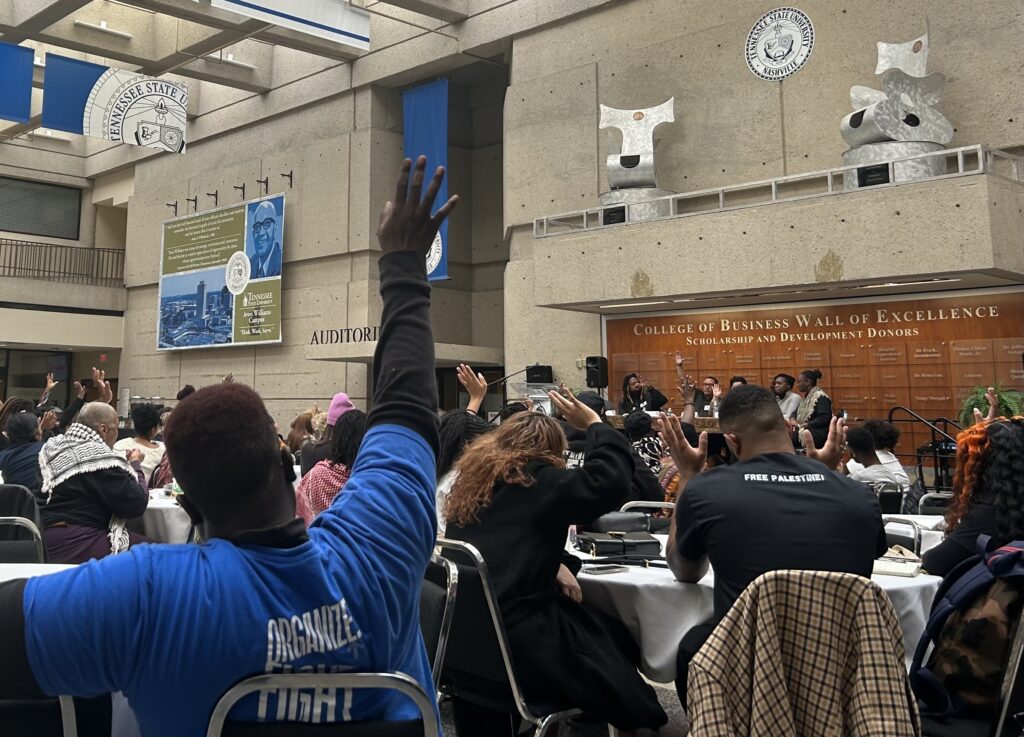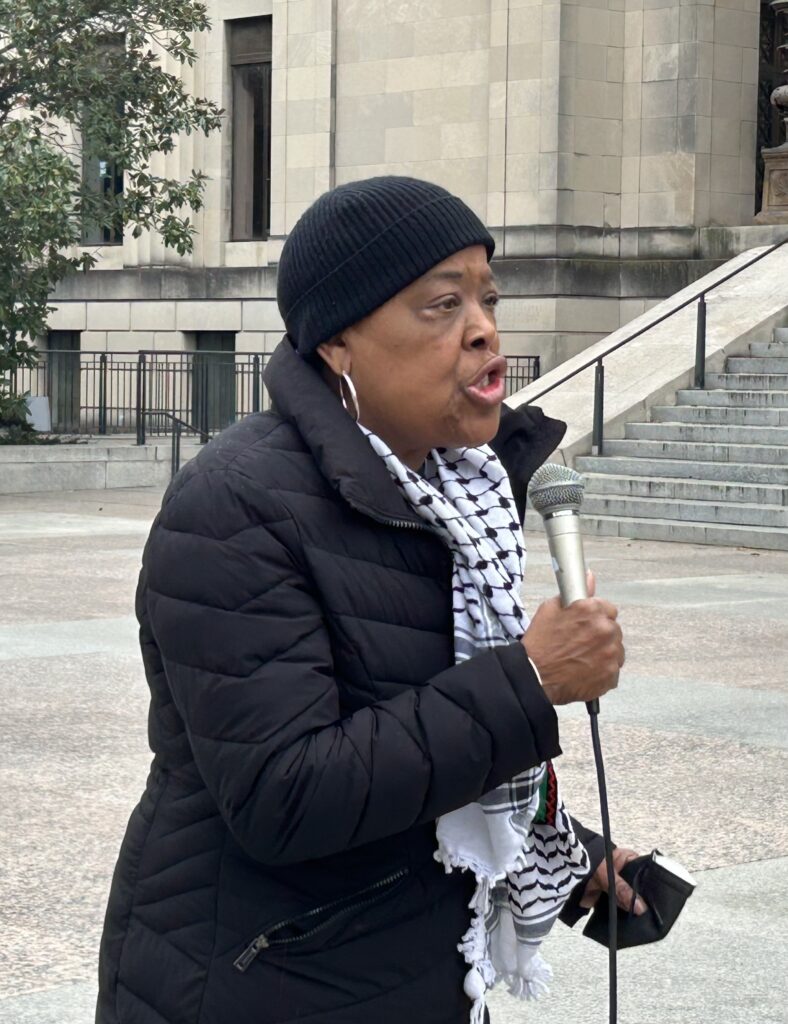
More than a hundred human rights organizers from around the country, many wearing keffiyeh or other pro-Palestinian symbols, gathered at TSU’s downtown Avon Williams Campus for the thirteenth bi-annual Southern Human Rights Organizers’ Conference (SHROC).
SHROC was founded by Jaribu Hill in 1996 after she moved to Mississippi following law school, and first took place at the historically Black Tougaloo College. Since then, it has moved around between southern cities; this weekend was its first time being hosted in Nashville.
 Rose Gilbert WPLN News
Rose Gilbert WPLN News Jaribu Hill wears a keffiyeh while addressing conference attendees at a protest against MALETA.
Hill founded SHROC to bring together organizers from across the United States to focus on human rights issues in the American South.
“The South does not get the attention that it is due,” she said, “It’s often forgotten that the South is central to many of these battles, especially when you’re talking about early civil rights struggles.”
Hill explained that she wanted SHROC to build on the framework of the Civil Rights Movement of the 1950’s and 60’s, but also wanted to expand its focus to a broader range of interconnected issues, including immigrant rights, labor rights, prisons and policing.
Palestine, policing, and labor organization were some of the major focuses of this year’s event.
Chris Smalls, the president and founder of the Amazon Labor Union, was one of the panelists. Smalls, who is based in New York City, explained that he saw the conference as an opportunity to build connections with the labor movement in southern states, where local laws are often unfriendly to unions.
“I want to help intertwine the struggle. There’s been a struggle down here with Amazon workers for a very long time, especially Bessemer, Alabama, which is not too far,” he said, referring to workers’ ongoing efforts to unionize at an Amazon fulfillment center.
Unions have made headlines across the country this year with several major strikes, including a national United Autoworkers strike that included a major General Motors assembly plant in Spring Hill, Tennessee.
This year’s conference also included a protest against the construction of MALETA, a $415 million law enforcement campus in Nashville that has drawn comparisons to the controversial Atlanta Public Safety Training Center project, better known as “Cop City.”
Theeda Murphy, an activist with Abolition Works Tennessee, helped organize this year’s conference, including the protest.
“We decided that this is a good action for this group, for our comrades across the region, to show that we are all fighting against this. We’re fighting against this in Atlanta. And we’re not going to stand for it here either,” she said.

